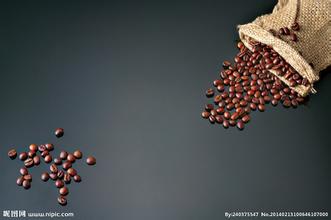Introduction to the original imported Peruvian Coffee Flavor description, Grinding degree treatment method, taste Price and Annual output
Peruvian coffee beans are most famous for coffee beans produced in Chancha Mayo in the middle and Cuzco in the south. In addition, there are also some areas in northern Peru that produce organic coffee. Organic coffee is made from beans grown in the shade. Although the method of growing coffee beans under shade makes the yield not high, the quality can reach the level of gourmet coffee. This is because shade under the tree slows the maturation of the coffee tree, helps the coffee grow fully, makes it contain more natural ingredients, fosters better taste, and reduces caffeine content.
The private Comerade Exportadores de Cafedel Peru was established to improve coffee quality, with the primary task of establishing standards and eliminating inferior products, thus creating an atmosphere of quality first. This positive move bodes well for the future of the coffee industry. Later, rising prices encouraged farmers to grow coffee instead of cocoa, the region's traditional cash crop
Peru's finest coffees are produced in Chassimayo, Cusco, Nott and Puno. Most Peruvian coffee is grown under natural conditions, but it is difficult to confirm the cultivation status of all coffee trees. Coffee grown under natural conditions costs 10%-20% more than others and is exported to the United States and Japan.
The quality of Peruvian coffee is comparable to any coffee from Central or South America. Another indication of the high standard of quality is the fact that most of the premium coffee produced in Peru is shipped to Germany for processing blends, except for instant coffee, which is then shipped to Japan and the United States.
Peru has good economic conditions and a stable political situation, thus ensuring the excellent quality of coffee. In the mid-1970s, Peruvian coffee production was about 900,000 bags a year, and then steadily increased to about 1.3 million bags a year. Although there are private exporters buying coffee from remote areas through middlemen, major markets remain monopolized by the Government. Later, the private Comera de Exportadores de Café del Peru (Peruvian Chamber of Coffee Exporters) was established, dedicated to the improvement of coffee quality, its primary task being to establish standards and eliminate inferior products, thus creating an atmosphere in which quality is paramount. This positive move bodes well for the future of the coffee industry.

Important Notice :
前街咖啡 FrontStreet Coffee has moved to new addredd:
FrontStreet Coffee Address: 315,Donghua East Road,GuangZhou
Tel:020 38364473
- Prev

Flavor description of Indonesian musk cat droppings coffee with characteristic treatment introduction to the characteristics of grinding degree and taste
Civet is a nocturnal animal that lives in the jungle and eats very little. Coffee beans produced by wild civets are very rare. Only in captivity can more Kopi Luwak be obtained. Some unscrupulous traders keep this animal in a narrow cage.
- Next

Meticulous and smooth description of Cuban Crystal Mountain Coffee Flavor introduction to the Manor
Cubita is produced in coffee from the pollution-free Crystal Mountain in the high altitude of Cuba, which is adjacent to the Blue Mountain Mountains of Jamaica and has similar climatic conditions, comparable to Jamaican Blue Mountain Coffee. Crystal Mountain is also known as the Blue Mountain of Cuba. So there are a lot of coffee under the banner of Cuba's Blue Mountains, but the purest Crystal Mountain Coffee Cubita in Cuba, coffee beans are picked.
Related
- Detailed explanation of Jadeite planting Land in Panamanian Jadeite Manor introduction to the grading system of Jadeite competitive bidding, Red bid, Green bid and Rose Summer
- Story of Coffee planting in Brenka region of Costa Rica Stonehenge Manor anaerobic heavy honey treatment of flavor mouth
- What's on the barrel of Blue Mountain Coffee beans?
- Can American coffee also pull flowers? How to use hot American style to pull out a good-looking pattern?
- Can you make a cold extract with coffee beans? What is the right proportion for cold-extracted coffee formula?
- Indonesian PWN Gold Mandrine Coffee Origin Features Flavor How to Chong? Mandolin coffee is American.
- A brief introduction to the flavor characteristics of Brazilian yellow bourbon coffee beans
- What is the effect of different water quality on the flavor of cold-extracted coffee? What kind of water is best for brewing coffee?
- Why do you think of Rose Summer whenever you mention Panamanian coffee?
- Introduction to the characteristics of authentic blue mountain coffee bean producing areas? What is the CIB Coffee Authority in Jamaica?

